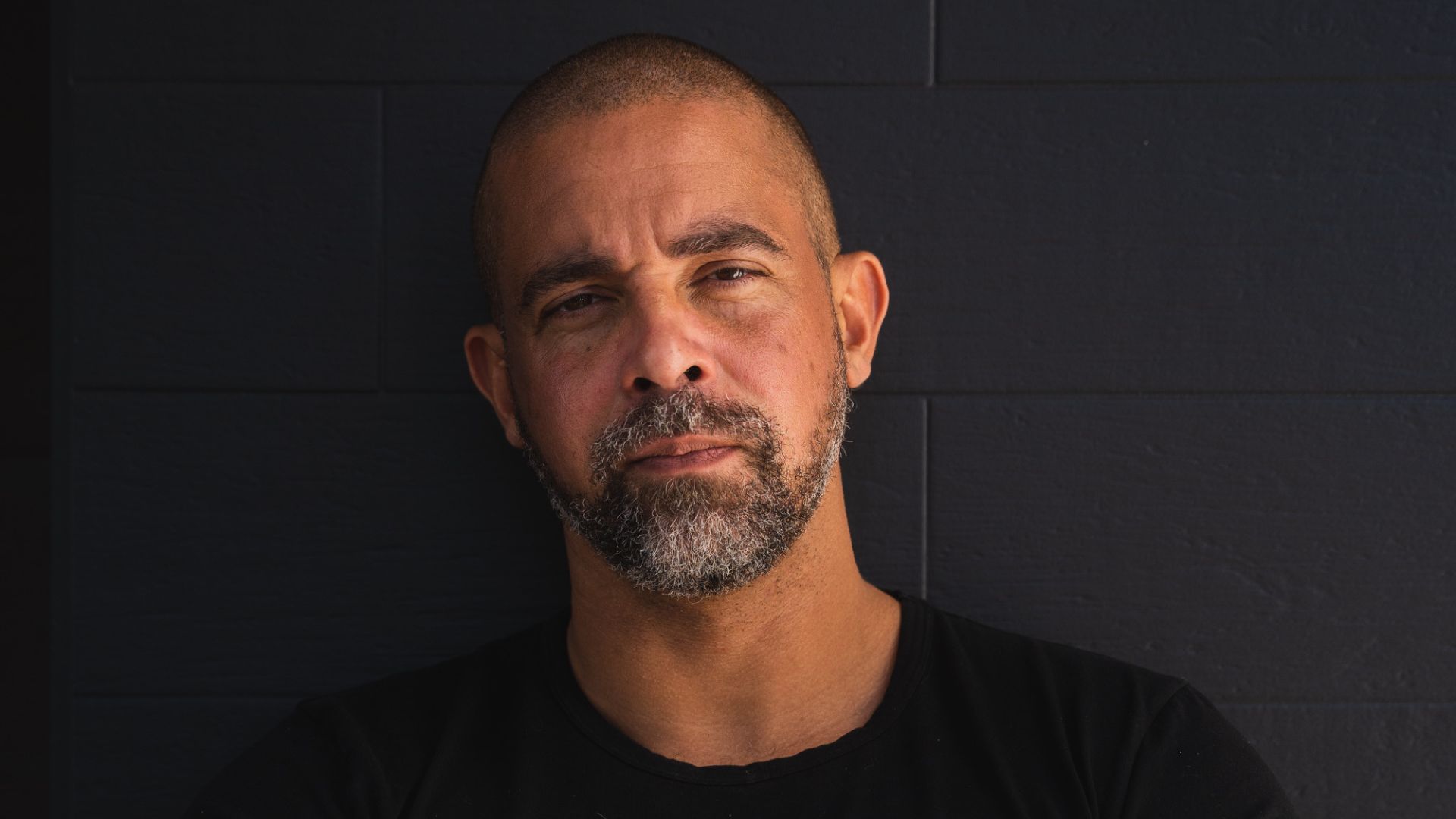Founder@ Interview
Interview with Owen Keenan-Lindsey

“If you have a vision and you want to implement it, then make sure any legal agreements you have in place allow you to execute that vision without fear or favour…” – Owen Keenan-Lindsey
Today we feature Owen Keenan-Lindsey, the founder at Assimilated International. We hear their story in their own words, their successes, their challenges and their insights.
As we sit down with the accomplished and dynamic founder of Assimilated International, it’s hard not to be intrigued by the story behind their success. With impressive achievements spanning across their background and career, this individual has undoubtedly made a significant impact in the world of business. Our conversation begins with getting to know the person behind the company, delving into their roots and journey that led them to where they are today.
Let’s start with learning a bit about you? (background, career)
I started off my career in financial services, first at Dun & Bradstreet and then moving to the St James’s Place Partnership. One of my passions has always been maths and financial services initially seemed like a great fit.
My early training focused on business taxation and trusts. But it was an area of particular legislative focus for the UK government at the time and some of the work I was doing became far more difficult in a new regulatory environment. Around the same time my first child was due to be born, so I decided to look at other career options.
I ended up at Alternative Networks (now part of Daisy Group). At that time they were very much in the ascendancy, having capitalised early on the increased competition and deregulation of the UK telecoms market in the 1990s. That was where I learned the basics of the services available and the job fitted in nicely with one of my other passions, technology.
I became a bit of a BlackBerry specialist while there and that’s how I ended up making most of my commission, by selling the product. At that time, to add the BlackBerry service could be as much as £40 a month in addition to charges for calls and data. But it was such a revolutionary solution in terms of being able to increase productivity while out of the office that it was simply a must-have.
As it would turn out, a few years later I ended up at BlackBerry (RIM) as a Vodafone channel manager looking after the relationships of indirect Vodafone partners. While there, I was able to meet everyone who was anyone within the UK telecoms market and it set the stage for where Assimilated is today.
While I was at BlackBerry, one of my partners (Olive Communications) approached me about coming on board as its sales director. The company had been through some challenging times with their T-Mobile relationship and needed to reset the business with a new figurehead and a different approach. I jumped at the opportunity as it came with a lucrative package and a fantastic opportunity to learn.
Through a mix of new business and acquisitions, we took the business from 10,000 connected mobile numbers to more than 70,000, before a new chief executive was brought in to look at private equity opportunities. At that point, I left the business and took some time off to work out what my next step would be.
My vision for Olive had always been to look at a more international model to compete against Vodafone Global, but the new board wanted to refocus on fixed telephony to grow revenue. So, in August 2013, I decided to start Assimilated. I bought a tiny customer base from a guy who worked out of a building that can only be described as a shed. This saved the hassle of applying for a new partnership with Vodafone and gave us a fantastic group of small companies to work with.
As we transition to discussing their brainchild, Assimilated International, we’re eager to discover what sets this company apart and how it contributes to the global marketplace. With a growing presence and an ambitious vision, we delve into the core of the company and its origins.
What does Assimilated International do and where is your company based?
We provide telecommunications services (mobile, hosted telephony, fixed internet, device management, etc), predominantly to international companies based in the UK or USA. We can offer services in any country using a single integrated management platform and account team for each customer. We have bases in Milton Keynes, Studio City (Los Angeles) and Lisbon, and are about to open up in Madrid.
As we continue our conversation, we delve deeper into the driving forces and defining moments that have shaped your journey. So what has been the story behind your success?
We solve problems for customers. Almost every large contract we have won has been the result of coming up with an innovative solution to a problem that none of our competitors were able to solve. Our story has been more one of evolution rather than revelatory moments, carefully adapting to the needs of our customers over time to grow the product set and our revenue streams.
Thank you for the insight, it’s clear that Assimilated International’s success stems from dedication and perseverance.
But we all know that the road to success is rarely smooth. So, let’s talk about the lessons learned and the challenges you’ve faced along the way.
What’s been your biggest lesson so far with Assimilated? (Please also tell us about some of the challenges you faced, what happened, when did it happen, how did you overcome it, did you overcome it. What did you learn?)
In the first five years of Assimilated, we focused heavily on our Vodafone partnership. Our offering was one of a dealer rather than a wholesale provider, and it involved numerous restrictions both in terms of how we were able to service our customers and also the products we were encouraged to sell.
I don’t think it’s too controversial to say that the financial interests of the UK’s largest telecommunications provider and the interests of the specific businesses we look after aren’t always aligned.
Although Vodafone remains by a large margin the network we spend the most with as a wholesaler, we aren’t subject to any of the network directed targets and product objectives that we found so restrictive in the early days. Having said all that, as a rule I am not someone who likes to look backwards and imagine what could have been if we had adopted our current model earlier.
On the more generic business side, it’s fair to say I played fast and loose with equity in the early days for very little return and did not invest heavily enough in appropriate legal representation to ensure that both my personal interests and those of the business were properly accommodated.
I paid a significant price for this around five years ago when the only option to resolve some of those challenges was to sell some of the business assets. However, once again, the significant pain the lesson caused ensured it has been burnished into my mind.
If you have a vision and you want to implement it, then make sure any legal agreements you have in place.

As you reflect on the lessons learned and the indelible impact they’ve had on your journey, it’s evident that these experiences have shaped your growth and success.
With the wisdom gained from overcoming numerous challenges, I can’t help but wonder what advice you would offer to your younger self and aspiring entrepreneurs.
Invest in solid legal protections from the start. It may seem expensive and unnecessary initially, but in the future it’s a decision you will never regret.
People and ideas diverge all the time and ensuring you have both flexibility and protection to account for the many possibilities your life may take in the future will pay enormous dividends. Be prepared to have harder conversations to achieve your objectives rather than provide assurances that erode your protections.
As you emphasize the importance of being prepared for tough conversations in order to achieve your objectives, it’s clear that resilience and determination have played a crucial role in your journey.
With that in mind, I’m curious about the practical side of running Assimilated International.
Most businesses need tools, apps, or services to run. What three tools help Assimilated run better?
Tekton (our billing platform) – it’s light years ahead of the majority of our competitors and we have some unique customisations based on the requirements of our customers that ensure we are able to provide them with faster and better information than anyone else in our industry.
Zapier – we use this tool to connect all our platforms to automate many tasks within the business. We estimate it saves us around 50 working hours per week across all departments and have plans for future automations that will eliminate all basic and repetitive tasks necessary to efficiently run the business.
Salesforce – I have a hate & hate relationship with Salesforce. I despise the lack of flexibility in its licensing model, the product is cumbersome and clumsy to customise and use, and integrations with other products are expensive and more difficult than most of its competitors. Having said that, it is the current backbone of our business. It has been expensive and time consuming to get it where we want it to be, but our business couldn’t operate without it.
What do you know now that you wished you had known before starting Assimilated?
I wish I had gone down the wholesale model initially.
Hearing that you wish you had pursued a different business model initially offers a fascinating insight into the ever-evolving nature of entrepreneurial journeys.
As we discuss your experiences, I’m eager to know about the highlights that stand out the most.
What has been your greatest or proudest achievement or moment?
Within Assimilated, re-establishing the business after clearing out the shareholders and selling our Vodafone dealer base. It was essentially starting over five years ago, but since then we are three times larger than in the first five years of the business and now able to focus exclusively on providing the best products and services to our customers.
Hearing about the remarkable growth and transformation of Assimilated International over the past five years is truly inspiring. It’s evident that your dedication to providing the best products and services to your customers has paid off.
As we look towards the future, I’m curious to know what goals you have in mind, both for Assimilated and for yourself personally?
I want to turn Assimilated into the dominant player in international corporate telecommunications, to be known as the brand that truly lets customers fully globalise their telecommunications offering, delivering unparalleled operational efficiency and service levels. On a personal level I would like to get a second dog once I get approval from my girlfriend!
It’s endearing to hear about your personal goal of getting a second dog, showing that even successful entrepreneurs have relatable aspirations.
As we wrap up our conversation, I’d love to hear your thoughts on inspiring others.
To finish our inspire questions…”We believe that sharing inspiring words can inspire others.” If there was one positive thing you would say to someone to inspire and empower them what would it be and why?
If your motivation is to ‘be your own boss’ or you are ‘tired of people telling me what to do’ – just give up now and save yourself the heartache.
Maths is your best friend. If it’s your bag then great, if not hire someone immediately who loves it. If you have a vision and you want to implement it, then make sure any legal agreements you have in place allow you to execute that vision without fear or favour.
“Thank you it has been great learning more about your founder story and Assimilated International“
To learn more about Assimilated International Visit https://assimilatedcomms.com/
Inspired by this story? Please share this story and other founder stories.
For more inspiring founders stories check out Founder Stories.





![[Company Name]'s Founder Stories](/wp-content/uploads/2024/10/Fonuder@-Partners-01a-150x150.png)












